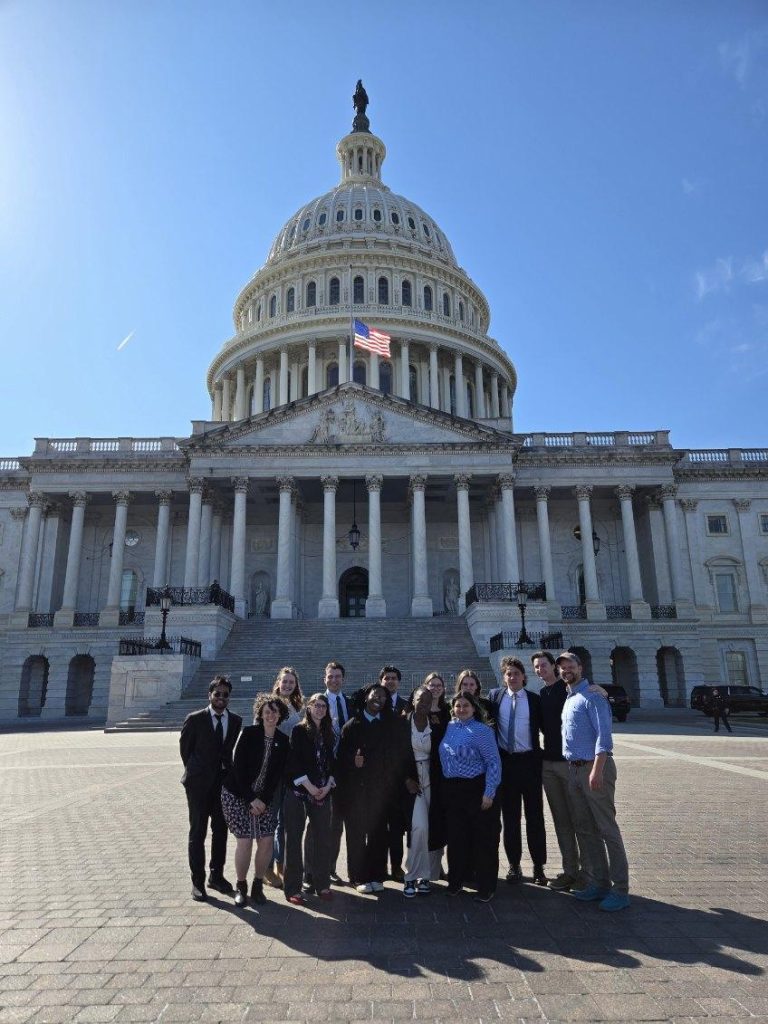Julia Daly ‘28
When I first found out that I had the opportunity to participate in the Food, Faith, Justice course on campus, I felt a jolt of excitement. I was ecstatic to be able to further my education on the topic of food insecurity and be able to participate in the service learning journey and community that FFJ creates. Spending the beginning of the second semester preparing for our journey to Baltimore helped to expand my knowledge on the topic of food insecurity as a result of fundamental structural issues present throughout the United States, especially the results and effects of redlining. Although learning about Baltimore’s growing food insecurity holds importance in the aspect of spreading awareness, the service experiences that I have been presented with this spring break were the takeaways I was most looking forward to receiving.

Finding out that I would have a once in a lifetime opportunity to speak with real United States senators and representatives in Washington, D.C., as a college student was something that I never expected to experience while on the FFJ spring break trip. Walking into the coffee meet and greet with Senator McCormick, I was hit with a wave of emotions. I was nervous to meet and speak with him, overwhelmed with the amount of powerful people in one room, yet excited to be in the physical Capitol Building. As McCormick began to take questions, a heated debate between the Senator and scientists exploded. Although this added to the stress of being in the Capitol Building, this reassured me that other groups and individuals are fighting for social causes as well. Although these causes may be for medical research, or working toward decreasing the infant mortality rate, they intertwine with FFJ’s cause of food insecurity. In this moment, my faith in people was reinstated, realizing that there are people who are fighting to keep research and social programs alive despite the current political climate chipping away at these fundamental institutions.
As a political science and sociology major, I was eager to jump at the opportunity to lobby during the later half of the Washington D.C. experience. Combining two of my passions, lobbying and food insecurity, FFJ was presented with a new policy to attempt to gain support for. The Modern WIC Act, aimed at strengthening the WIC program, would allow for full funding and remote access to certifications and the reloading of EBT Cards. This act would be revolutionary in supporting those who are and have been faced with food insecurity, increasing the number of individuals who would have the ability to physically sign up for WIC as a whole. Lobbying on behalf of the Modern WIC Act gave me hopes of directly influencing policy makers and their role in the widespread food insecurity in the United States.
Sitting through and speaking in meetings with Representative Thompson, a representative of Senator Gillibrand, and Senator Fetterman allowed me to experience first hand lobbying at practically the highest governmental level possible. While some government officials seemed more receptive to our lobbying efforts, I realized that nothing can be accomplished in one fifteen or thirty minute meeting. This was a main point that I took away from one of the many insightful discussions with our lobbying partner, Bread for the World. Seeing change or having success with gaining support for a particular bill takes persistence and perseverance. Lobbying successes are a culmination of easily at least a year’s worth of conversational efforts.
Not only did I feel like I was able to positively contribute to the widespread food insecurity problems in America through the governmental level, but I was also able to get my foot in the door of the political world. As I went throughout the day I felt a growing sense of belonging in my field of passion, knowing that I am on the right career path.